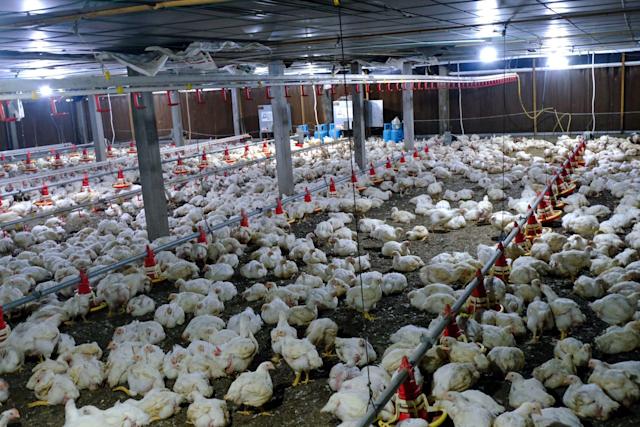Singapore businesses and consumers are rushing to figure out how to cope with Malaysia’s impending halt of some chicken exports.
From Wednesday, Malaysia will ban the export of 3.6 million chickens a month to ease rising food costs and ensure adequate domestic supplies.
The move has left Singapore stores selling chicken products in limbo, and consumers apprehensive about whether they will still be able to enjoy favourite meals such as chicken rice.
“My family loves the dish and we eat it about two or three times week,” said William Tan, an engineer.
“I’m still thankful that many chicken rice stalls I patronize have not raised their prices. But it probably means they are absorbing the extra cost, so I’m not sure if it’s sustainable for them.”
Singapore navy chef Ho Lian Shun also decided to cook chicken rice for his crew of 50 people a few days after the ban was announced. Ho was onboard a ship for a week-long sailing at the time of the announcement.
“The news caused a very big reaction,” he said. “Our kitchen staff kept emphasizing to use every part of the chicken, and not waste a single piece of meat.”
About 34% of Singapore’s chicken imports were from Malaysia last year, with almost all imported as live chickens and slaughtered and chilled in the city-state.
The Singapore Food Agency said the restriction may result in temporary disruptions to the supply of chilled chicken, and urged consumers to be open to switching to frozen chicken or other meat products.
Chicken importers are urging clients to accept the parts of the bird, such as the breast or wing, that are available, rather than ordering a whole bird, the Straits Times reported on Monday.
Importers are boosting processing and stockpiling as much chicken as they can ahead of the ban, the paper reported.
Some higher-end chickens will still be allowed for export, the Business Times reported, citing Aqina Farm spokesman Scott Ang. The ban mainly affects mass-market “broiler” chickens that are in higher demand in Malaysia due to their accessibility, he said.
It was confirmed via virtual meetings with relevant authorities in Malaysia that kampong, or free range, and organic chickens have been given approval for export, Ang told the BT.
Higher-end restaurants are assured of their supplies of free-range chicken, the BT said, noting that the Coconut Club’s supplier, Toh Thye San, was able to secure its supplies with no change in price at the moment.
Toh Thye San is known for its GG French Poulet, which is certified organic and humanely raised, the BT said.
Separately, the Straits Times reported that many patrons of stalls that serve chicken rice — a regional specialty — aren’t worried about the ban and say frozen chicken would be fine.
“We need to take it one step at a time.
There is no point worrying,” said Johnny Chee, who works at Min Kee Hainanese Chicken Rice at Amoy Street Food Centre.
He pointed out that while it is possible to use frozen chicken, not all frozen chickens make the cut.
“If we use frozen chickens, we need big ones that weigh at least two kilograms as it needs to have sufficient meat to debone,” Chee said. “But it cannot be too big because the meat will be very tough.”




